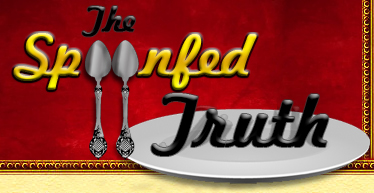Rights versus
privileges
-or-
Morality versus evil
If I correctly understand the nature of delegated powers, the
"State" is empowered to administer the "public ways" for our public
use. However, the "right of locomotion" doesn't include the use of
public property for private gain, as in using it as a place of business.
The question is: How did private travel became "commercial use" of
the public roads?
I believe it may extend from national socialism [1935].
If "private property rights" [absolute ownership of land, houses, and
chattels] are among those unalienable rights, and socialism
ABOLISHES private property rights, it follows that there are few, if
any "private property" vehicles on the road.
Bear with me.
If the government is instituted to secure "private property rights" that
are no longer evident due to voluntary surrender, what's left?
"Qualified ownership" by "persons" with an interest that's "less
than title"?
So what parties are interested in "your auto" and "your person"?
Those parties to whom you have pledged (FICA) yourself and your
chattels, as your contribution (obligation) to the national debt.
How does the creditor's interest in you and yours erase the
presumption of non-commercial use?
Think of the plight of the share-cropper who is allowed to stay on the
owner's property as long as he raises cash crops to share (pay
rent or tribute) with the owner. If he ceases his commercial activity,
he's ejected from the property.
Sound familiar?
The interested party "allows" us to use pledged property ONLY if we act
in commerce, thus allowing him the protection of limited
liability, insurance of the property in question, and immunity to
our objections [see any bank agreement for illustration].
If we cease to act according to the interests of the creditor, we are
ejected from the public ways, by his servant, the government.
To restore our claim to private property, we must first eradicate
the claim of the creditor on ourselves.
So in one sense, there is a "contract" but the government is not the
party to the agreement. The government is acting in behalf of the
interests of the creditor.
What does morality have to do with this?
A moral man doesn't intend to do harm, and if he does harm, offers
compensation. An immoral man seeks to do harm, and if caught, tries
to avoid compensation.
If you examine the reams of law and regulation, it would appear to be applicable to those who aren't moral, i.e., intentionally
dangerous, and incapable of offering compensation. Remember, you
can't "give away" the creditor's property as compensation, without his permission.
In this way, the immoral creditor, who's usury bankrupted the
nation, can transfer his obligation to YOU, by your consent. And as
a status criminal, you become subject to and object of the civil law in the process.
The public servant, in government, is burdened with the gigantic task of
administering a nation of immoral bankrupts, without private
property rights, and irresponsible. Should we blame him or ourselves?
Recapping, we "sold" our birthright for entitlements (charity), and
as contributors (and bankrupts), have accepted "civil slavery" as
our condition for national socialism. We don't "absolutely own" the
land, nor can we grant rights of way upon that land, and can't
presume that we retain the reciprocal rights of locomotion due to
all freemen domiciled within the USA.
The solution lies in changing our status at law, regaining private
property rights, and mutually defending our natural and personal
liberty.
I hope this helps.
http://www.realtruth.biz/freedomstuff/rights_vs_privileges.htm
| 



